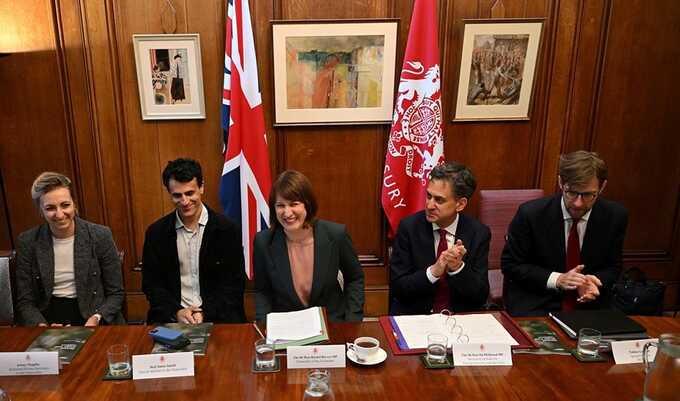

Reforms to inheritance and capital gains taxes could reduce £20bn shortfall and combat UK’s widening wealth gap
Rachel Reeves could quickly find around £10bn a year to plug half of the fiscal hole left by the Conservatives if she were to raise taxes on soaring levels of unearned wealth, according to leading economists.
New research by the independent Resolution Foundation published today finds that Britain is a country of “booming wealth” but “busted wealth taxes”, leaving ample potential for the chancellor of the exchequer to raise desperately needed funds by raising taxes on the richest.
The report finds that levels of wealth have risen from four times the national income when Labour was last in power to six times the national income today, despite the recent rise in interest rates.
But it says Britain is a country of huge “wealth gaps” in which a family in the top 10th of the wealth distribution has £1.3m more wealth per adult than someone in the middle of the distribution.
Overall, the Resolution Foundation study finds that wealth inequality is nearly twice as high as income inequality. It notes that on the eve of the pandemic, three in 10 families had less than £1,000 in savings – meaning they lacked any real safety net.
This was dramatically exposed during the cost of living crisis, when many families were unable to cope with rising prices and household bills.
The report says that while wealth has become increasingly concentrated at the top, wealth-related taxes as a share of national income have remained low, at around just 3% of national income.
Key wealth taxes – notably inheritance tax (IHT) and capital gains tax (CGT), it says – are poorly designed to tax wealth and would be ripe for reform in the Labour chancellor’s first budget this autumn, helping Reeves meet her fiscal rule of having debt falling as a proportion of GDP in the last year of the parliament.
The report says IHT has many generous reliefs, meaning that the very wealthy often pay a low effective rate. It argues that ending or limiting these would raise up to £2bn a year while also enhancing fairness.
It also argues that if capital gains tax rates were to be linked to income tax rates, this would reduce incentives for the wealthy to change how they are remunerated to avoid tax.
Raising CGT rates on shares to match the rate of tax on dividends could, for instance, raise up to £7.5bn a year.
Together, these two moves – bringing in £9.5bn a year – could help Reeves as she faces up to tough challenges on public spending.
Simon Pittaway, senior economist at the Resolution Foundation, said: “For decades, Britain has been riding the wave of a wealth boom, and one that has been only slightly deflated by the recent rise in interest rates.
“As a result, wealth has increased from four times national income when Labour was last in office to six times national income today.
“But too many families have missed out on this wealth boom. Over one in four people say they wouldn’t be able to pay an unexpected expense of £850, highlighting that too many families lack a basic financial safety net that even moderate levels of wealth can provide.
“Wealth taxes have failed to catch up too.
“Modernising our wealth taxes, removing leakages and distorting behaviour could improve the efficiency of our tax system and raise vital revenue for the exchequer.”
Stuart Adam, senior economist at the Institute for Fiscal Studies, said: “It would certainly be possible for the government to raise a few billion pounds from reforms to capital gains tax and inheritance tax.”
Both taxes, he said, currently include reliefs “that are hard to justify”, such as the way pensions pot are exempt from inheritance tax at death.